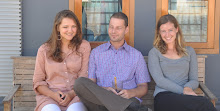On the basic level of operational requirements, we’ve been able to almost completely finish our ‘to-do’ list. First of all we finally changed our vastly overpriced hotel for a much more affordable house, located on the border of Banda Aceh and the Aceh Besar outskirts, located closely to the road to Meulaboh. The house is on a gated complex of six houses overlooking the rice paddies, inhabited by Acehnese families. We’re still in the process of getting internet established in the house, but as with anything in Indonesia, the mechanism of ‘rubber time’ applies, so no idea when we’ll have it. But overall one could say we’ve finally settled in.  Photo by Michiel Mollen
Photo by Michiel Mollen
 Photo by Michiel Mollen
Photo by Michiel MollenSecondly we’ve arranged another 125cc motorcycle, a simple task that turned out to be not so easy, in a city without any motorbike rental companies. Even though none of us has a motorcycle driving license, the two motorbikes are the most safe, efficient and economic way of getting around the city. The ‘becak’ rides with three passengers (a motorcycle with side cart taxi) are to be called far from comfortable; its drivers never seem to know a single address in Banda Aceh. This also goes for the largest part of the regular cabdrivers, who additionally will try to charge the same cab fares as in Holland. Motorbikes it is.
More directly related to our research we’ve been able to set up office with the UNDP at the office of the Governor of Aceh, thanks to Raji Oji’s contact within UNDP. Nigel Landon kindly took us on board, allowing us access to many UNDP facilities, including their mapping department. The official address of the office is:
U N D P
3rd floor, Gedung ex-Biro Keuangan
Kantor Gubernur NAD
Jalan T. Nyak Arief No. 219
Lampineng - Banda Aceh
Indonesia

@ UNDP
Meanwhile we’ve also opened our research track by initiating direct contact with local parties, who already have been able to grant us access to many of the needed data and maps. We managed to meet in person with the Chief Operating Officer of the agency responsible for the overall coordination of the redevelopment of Banda Aceh and Nias, the BRR (Badan Rehabilitasi dan Rekonstruksi), Eddy Purwanto. He explained during a two hour meeting how the BRR hopes to become an example to the rest of the world in dealing with post disaster redevelopment. Mr. Purwanto made clear that they’ve been able to break loose from an Indonesian history of inefficiency and corruption, gaining much more effect from the same dollar. They reduced overhead costs from over 20% down to just 4%, by just hiring staff on local salaries, in that way deminishing career opportunism and guaranteeing personal dedication. Over 60% of staff was hired locally, the rest coming from the numerous NGO’s. Project tendering was now completely open, allowing the BRR to escape from the earlier practice of illegal price agreements and reducing tendered sums with 20%. Being able to show to the donors that their money was spent wisely, generated enough goodwill and trust to enhance the willingness to help. A positive spiral was initiated. Another remarkable step taken by BRR was putting aside the blueprint Jakarta had developed for the Banda Aceh redevelopment. It turned out its objectives were lacking practical feasibility, developed from a top down perspective. Purwanto said “enough of this”. For instance the plan to move all coastal dwellers inland by three kilometers would have meant all fishermen ended up living high up in the mountains. BRR decided to develop alternate strategies in close collaboration with the tsunami survivors and the present NGO’s. Instead of looking for specific goals to accomplish and trying to find the means to accomplish them, BRR took a much more successful reverse approach by making an inventory of available resources, manpower and knowledge and constructing ad hoc solutions from it. Another fact recognized by BRR was the necessity to safeguard the trust of the population, preventing to be sent away from the aid process. Despite the criticism the UE Indonesia team has heard on BRR, the team embraces the intentions and efforts made by this agency, aware of the fact that anywhere where work is being done, errors are being made.
In the meantime we’re constantly being introduced to new people, either from UNDP or local officials. We have free access to the database of the SIM-centre of Banda Aceh. They are situated in the building next to our office and can provide us with all available kinds of demographical and geographical data. The coming days we’ll sieve through the most of it, and see what is of actual use in our mapping process. We’ve already made a good start with analyzing the city with Space Syntax. The results of this we’ll publish fairly soon.




Nice house!!! Are you all allowed to live together or is the girls section barbewired from Michiels place?
ReplyDeleteAny how curious about to hear your interpretations of your space syntax studies.
We're currently integrating with our local community, who are largely alchoholic. Post disaster development, or local culture (anyhow an interesting mic between super strong rum, and light beer)